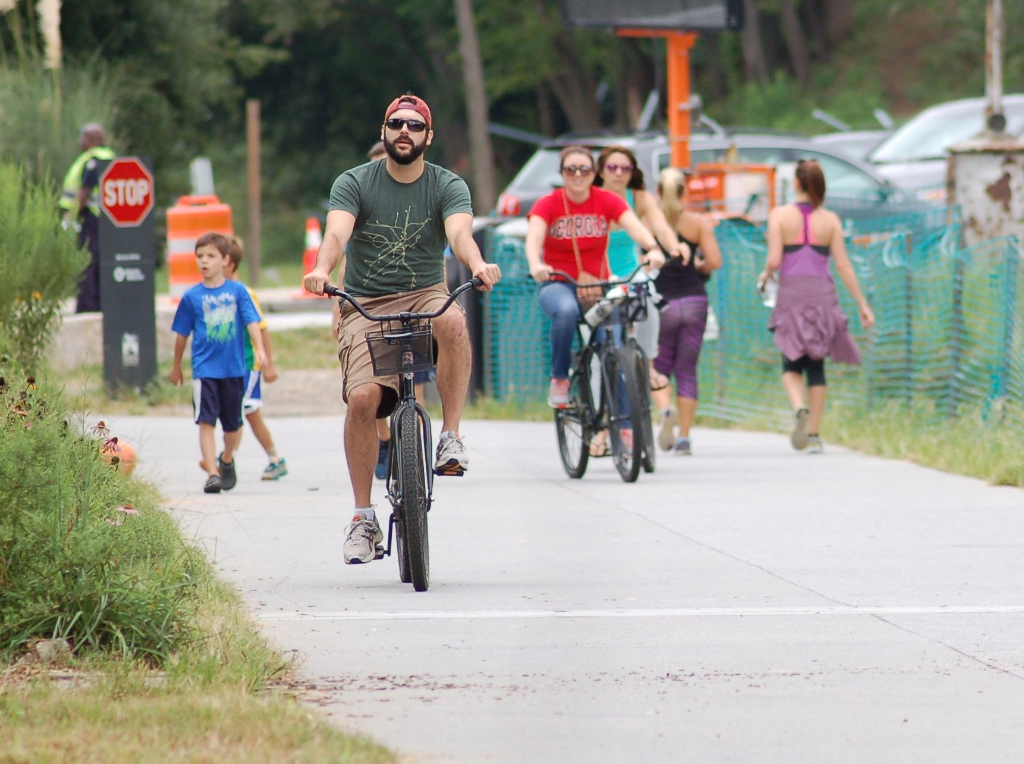Bikes often remain unused in garages, left to rust as their tires slowly deflate from lack of use. Whether owners think of them as useless or not worth the expense, fewer and fewer people are buying and using bicycles. In fact, sales have declined from a year ago.
However, many still find use in their bikes.
“[My bike allows me] to get to places more quickly in town, and also it’s a way to get some serious exercise during time I’m spending commuting anyway,” junior Ely Peteet said. “It’s like killing two birds with one stone.”
Soon, Atlantans will have an alternative to buying bikes, a way to just ride every once in a while without having to own one. A bike share system, modeled mainly after programs in close to 1,000 cities, will appear in Atlanta in the coming year.
The bike share system is fairly straightforward. A person can purchase an hourly, daily, monthly or annual membership online, from an app or at the bikes themselves. Patrons will be able to pick up bikes from one of the city’s docking stations, and return them to either the same spot or to a different station.
The new Atlanta bike share, however, does not tether riders to just the system’s stations when finding or returning a bike. Iconologic, the marketing company known for design work on the 1996 Atlanta Olympic Games, is tasked with promoting the bike share and working with donors to sponsor the individual stations.
When describing one of the biggest issues with the development of the bike share, City Council member Kwanza Hall, who sponsored the bike share legislation, said that “the city wanted to make sure that it had the right partners for the program. Identifying a group of partners who had national track records and/or local roots was important.”
The city ultimately selected CycleHop, a company that helps to bring bike shares to cities around the country, to work in conjunction with Social Bicycles, a company that handles the security and technology of the bikes.
Ward Copeland, a managing partner for Iconologic, spoke of the convenience of the new system, which will utilize GPS tracking.
“When someone ends their ride and locks their bike, that signal transmits back into our system and shows up as a bike that can now be rented again [in that new location],’’ Copeland said. “It makes one way trips very, very possible.”
This system, similar to Uber and Zipcar, is part of a second generation of bike shares. In cities such as New York and Boston, which have first generation systems, riders can only use bikes station-to-station. In the Atlanta model, riders will be able to drop the bikes at any location. This eliminates the need of planning a route around dropping a bike at certain stations.
Even though bikes will not have to be dropped off at one of the planned 50 stations, an operations team will “refill” the stations by gathering the bikes that have been left in places other than the stations and putting them back at various locking stations. This will ensure that the stations are always consistently stocked.
While the exact prices have not been released, Copeland mentioned that the program would offer a student discount. Atlanta’s bike share will have the same pay system as most of its predecessors in other cities, with the prices to be determined
at a later point in time.
If all goes according to plan, 500 bikes will come to Atlanta in the fall. Copeland said the bikes were extremely durable.
“The bikes themselves are very, very sturdy,” Copeland said. “They’re built to last. They’re shaft driven, meaning there’s no chain, so you don’t have to worry about getting your clothes all ripped up or chewed up in the bicycle itself. They have Kevlar tires, and they have lighting that will illuminate when it gets dark, so they’re pretty secure.”
When asked about the ideal outcome of the bike share, Hall said he “would love to hear stories of Atlantans using [the bike share] to get from their homes and offices to a meeting, the grocery store, or a festival.”








